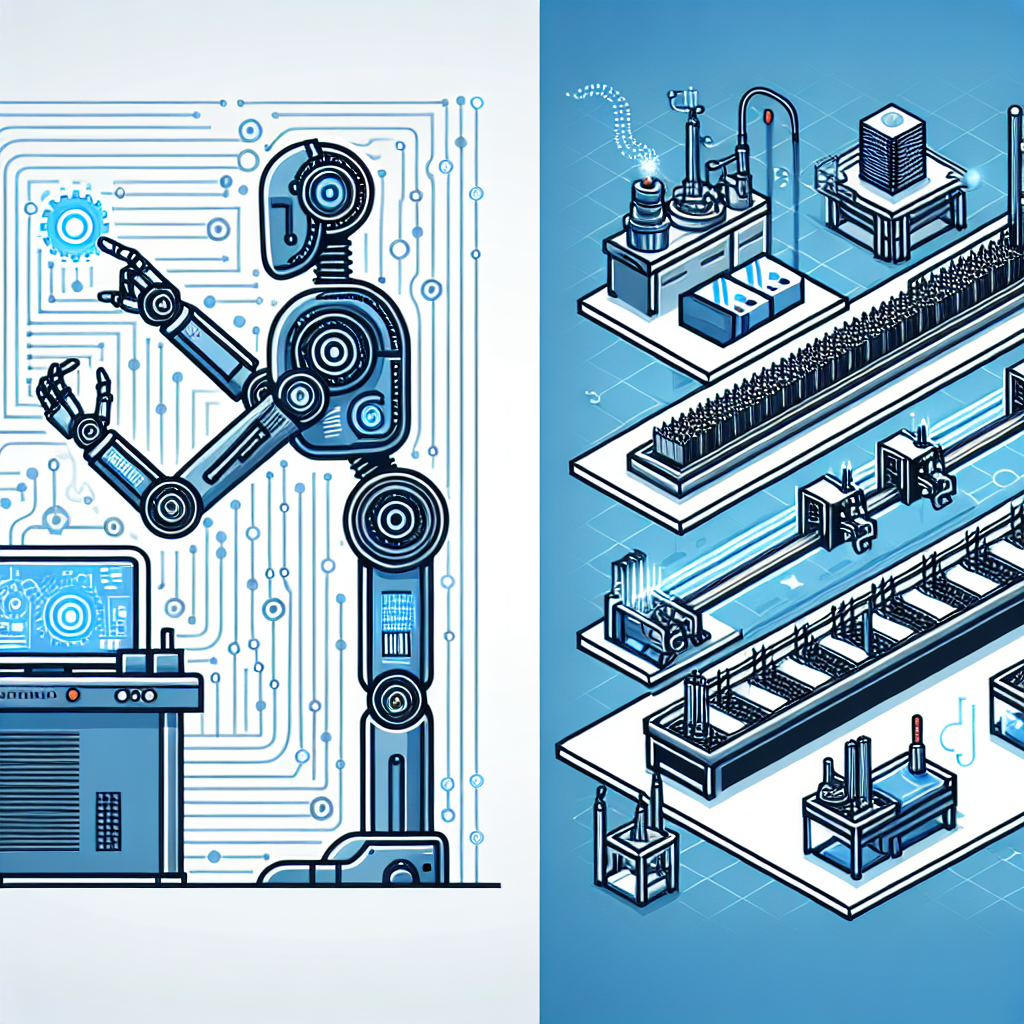In recent years, the integration of artificial intelligence (AI) technologies into manufacturing processes has revolutionized the way companies operate. One area where AI has had a significant impact is in lean manufacturing practices. Lean manufacturing is a methodology that focuses on minimizing waste and maximizing efficiency in production processes. By leveraging AI technologies, companies can further enhance their lean practices and achieve even greater levels of operational excellence.
AI technologies, such as machine learning algorithms, robotics, and predictive analytics, have the ability to analyze vast amounts of data in real-time and make intelligent decisions to optimize production processes. This has allowed companies to streamline their operations, reduce costs, and improve overall productivity. In this article, we will explore the impact of AI on lean manufacturing practices and how companies can leverage these technologies to drive continuous improvement in their operations.
Impact of AI on Lean Manufacturing Practices:
1. Predictive Maintenance: One of the key areas where AI has had a significant impact on lean manufacturing practices is in predictive maintenance. By analyzing data from sensors and other sources, AI algorithms can predict when equipment is likely to fail and schedule maintenance before a breakdown occurs. This proactive approach to maintenance helps companies avoid costly downtime and ensures that production processes run smoothly.
2. Quality Control: AI technologies can also be used to improve quality control processes in manufacturing. By analyzing data from sensors and cameras, AI algorithms can detect defects in real-time and alert operators to take corrective action. This helps companies reduce waste and improve product quality, leading to higher customer satisfaction and increased profitability.
3. Inventory Management: AI can also be used to optimize inventory management processes in lean manufacturing. By analyzing historical sales data and demand forecasts, AI algorithms can predict when and how much inventory to order, helping companies reduce excess inventory and minimize stockouts. This results in lower carrying costs and improved cash flow for the company.
4. Production Planning: AI technologies can also be used to optimize production planning processes in lean manufacturing. By analyzing data from various sources, such as sales forecasts, production capacity, and supply chain constraints, AI algorithms can generate optimized production schedules that minimize lead times and maximize efficiency. This helps companies meet customer demand more effectively and reduce production costs.
5. Autonomous Robots: AI-powered robots are increasingly being used in manufacturing processes to automate repetitive tasks and improve efficiency. These robots can perform tasks such as material handling, assembly, and inspection with greater speed and accuracy than human workers. By integrating autonomous robots into their production processes, companies can achieve higher levels of productivity and reduce labor costs.
6. Continuous Improvement: AI technologies can also help companies drive continuous improvement in their lean manufacturing practices. By analyzing production data and identifying areas for optimization, AI algorithms can suggest improvements to processes and help companies implement changes that lead to greater efficiency and cost savings. This iterative approach to improvement helps companies stay competitive in the rapidly changing manufacturing landscape.
FAQs:
Q: How can companies get started with implementing AI in their lean manufacturing practices?
A: Companies can start by conducting a thorough assessment of their current processes and identifying areas where AI technologies can be applied to drive improvements. They should also invest in training their employees on how to use AI tools effectively and collaborate with technology partners to develop customized solutions that meet their specific needs.
Q: What are some of the challenges companies may face when implementing AI in lean manufacturing?
A: Some of the challenges companies may face include data security and privacy concerns, integration with existing systems, and resistance from employees who may be skeptical of new technologies. Companies should address these challenges proactively by implementing robust security measures, conducting thorough testing before deployment, and engaging employees in the implementation process.
Q: How can companies measure the impact of AI on their lean manufacturing practices?
A: Companies can measure the impact of AI on their lean manufacturing practices by tracking key performance indicators (KPIs) such as production efficiency, defect rates, inventory turnover, and customer satisfaction. By comparing these metrics before and after implementing AI technologies, companies can quantify the benefits of their investments and make informed decisions about future improvements.
In conclusion, AI technologies have had a transformative impact on lean manufacturing practices, enabling companies to achieve higher levels of efficiency, quality, and productivity. By leveraging AI tools such as predictive maintenance, quality control, inventory management, production planning, autonomous robots, and continuous improvement, companies can drive operational excellence and stay competitive in the rapidly evolving manufacturing landscape. By addressing challenges proactively and measuring the impact of AI on their operations, companies can unlock the full potential of these technologies and reap the benefits of lean manufacturing.

